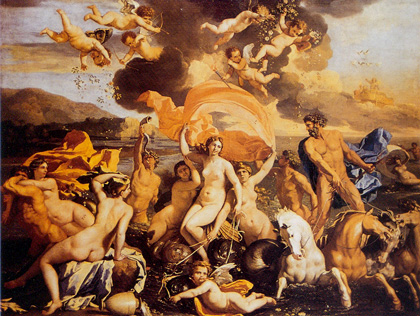

 字體:小 中 大
字體:小 中 大 |
|
|
|
| 2009/09/13 13:12:22瀏覽1128|回應0|推薦19 | |
我們來繼續談吧...考慮到所有的知識和任何尋求,都是針對某種善,這樣的事實;那麼,我們認為的政治學目的是甚麼?我們的努力能夠達到的最高善是甚麼?以言詞來說,幸福,對於販夫走卒和較高級的有教養者,正好會是一致同意的;也都認同恰當的生活和好的善行。當然,他們對於善的關心也有分歧,而且大部分的人對於善的價值和智者的看法也不盡相同;大部分的人認為善是一些簡單明白的事,諸如愉快、富有、榮譽。無論如何,人人各有看法…通常,甚至於同一個人也會有多種看法;例如,在他生病時會認為健康是幸福的,窮時則希望發財。有些人自知自己的無知,會欽佩那些懷有高貴理想的人;雖然那種理想是他們無法理解的。因此,有些人會理解到,在這些許多的善之外有自己獨立存在的善;它也導致所有這許多善的發生。檢視這些各持己見的所有看法可能有點不切實際;檢視那些普遍的或值得議論的就夠了。 無論如何,我們不要忽略爭論的由來,還有那些最早的信念間的不同。說到柏拉圖,他也正好提起這問題,並且如他習慣的問「我們是在疑問的起點,或是找到了最早的信念?」。如同在競賽的跑道上,裁判點到轉折點間的路線和起始的路線,是有不同的。然而我們必須從已經知道的開始,因為事物是知識的對象,具有兩種意義;有些是對我們自己而言,有些是毫無限定的。那麼,我們大概必須從自己知道的事物開始。因此,明智來聽這關於高貴、正直以及廣泛的政治學課題的任何人,一定是已經培養好善的習性。因為這個起點就是論據,如果對他而言這足夠清楚了,可能不在起點的人同樣需要這個判斷;而已經教養好的人會有或可能輕易的抵達起點。至於那些既無也不能抵達起點的人,請他聽聽赫西爾德說的: 自己能博學廣知的人,是最好的; 能虛心受教別人勸告正當事的人,是好的; 而那種既無知也不在乎別人智慧的,是無足輕重的人。 Let us resume our inquiry and state, in view of the fact that all knowledge and every pursuit aims at some good, what it is that we say political science aims at and what is the highest of all goods achievable by action. Verbally there is very general agreement; for both the general run of men and people of superior refinement say that it is happiness, and identify living well and doing well with being happy; but with regard to what happiness is they differ, and the many do not give the same account as the wise. For the former think it is some plain and obvious thing, like pleasure, wealth, or honour; they differ, however, from one another -- and often even the same man identifies it with different things, with health when he is ill, with wealth when he is poor; but, conscious of their ignorance, they admire those who proclaim some great ideal that is above their comprehension. Now some thought that apart from these many goods there is another which is self-subsistent and causes the goodness of all these as well. To examine all the opinions that have been held were perhaps somewhat fruitless; enough to examine those that are most prevalent or that seem to be arguable. Let us not fail to notice, however, that there is a difference between arguments from and those to the first principles. For Plato, too, was right in raising this question and asking, as he used to do, 'are we on the way from or to the first principles?' There is a difference, as there is in a race-course between the course from the judges to the turning-point and the way back. For, while we must begin with what is known, things are objects of knowledge in two senses -- some to us, some without qualification. Presumably, then, we must begin with things known to us. Hence any one who is to listen intelligently to lectures about what is noble and just, and generally, about the subjects of political science must have been brought up in good habits. For the fact is the starting-point, and if this is sufficiently plain to him, he will not at the start need the reason as well; and the man who has been well brought up has or can easily get starting points. And as for him who neither has nor can get them, let him hear the words of Hesiod: Far best is he who knows all things himself; |
|
| ( 心情隨筆|心靈 ) |










